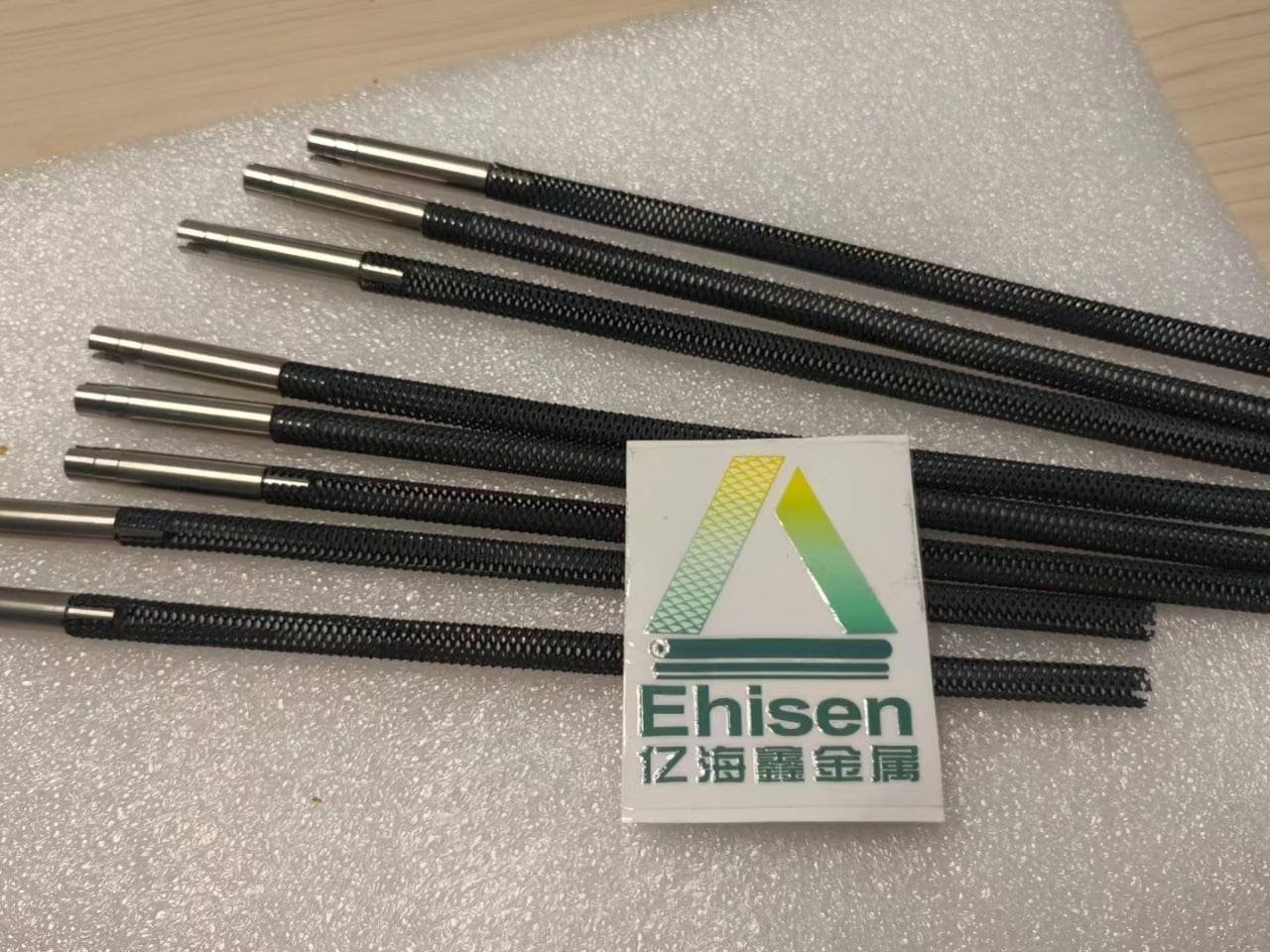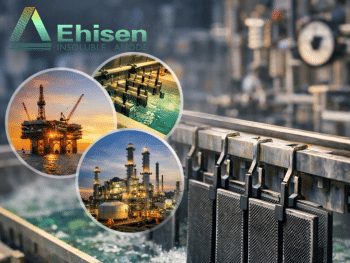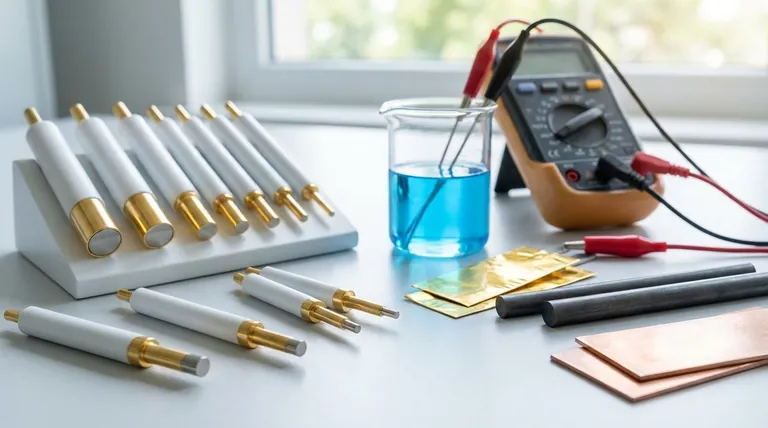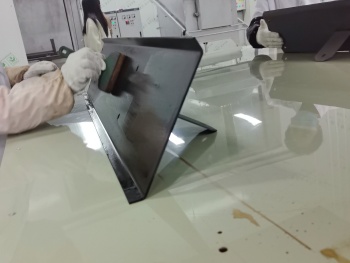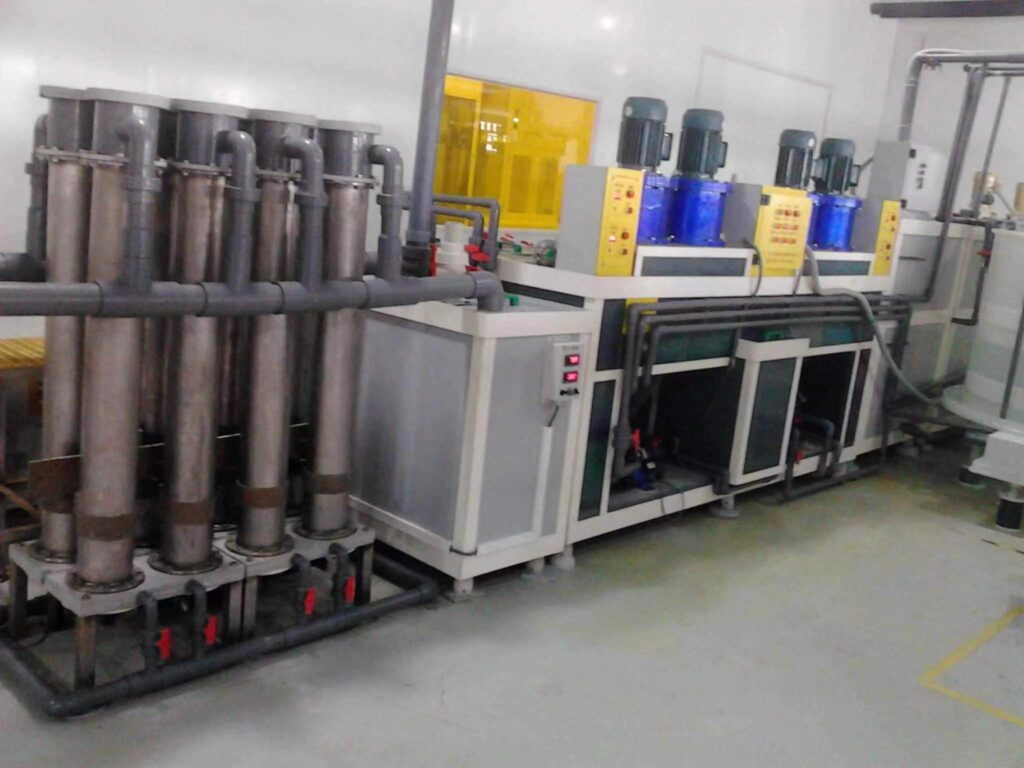Introduction: The Hidden Hero of Your Water Heater System
When it comes to your water heater, you likely don’t give much thought to the anode rod—yet, this small but crucial component plays an important role in maintaining your water heater’s lifespan and efficiency. Simply put, the anode rod is the unsung hero that helps prevent corrosion and extend the life of your tank. Without this protective element, your water heater would be much more prone to wear and tear, leading to costly repairs or even a tank failure.
In this article, we’ll dive deep into the world of water heater anode rods, with a special focus on the benefits of using titanium anodes. We’ll explore how these rods function, the different materials used to make them, and why titanium is the preferred choice for both residential and industrial applications.
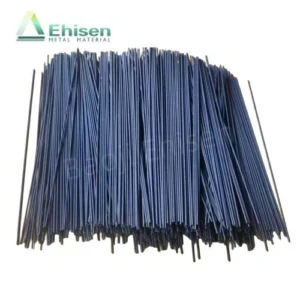
1. What Is an Anode Rod?
An Overview of Anode Rods in Water Heaters
An anode rod is a metal rod that is inserted into the tank of your water heater to prevent corrosion. Over time, water heaters experience a phenomenon called electrolysis, where minerals in the water interact with the tank and create a corrosive environment. The anode rod helps counteract this by attracting the corrosive elements, thereby preventing them from attacking the tank itself.
These rods are typically made from magnesium, aluminum, or titanium. While magnesium and aluminum are more commonly used, titanium anodes offer superior performance, which makes them an increasingly popular choice, especially in industrial applications.
What Happens When the Anode Rod Fails?
When the anode rod fails or corrodes too much, the steel of the tank is exposed to these corrosive elements, which can lead to rust and leakage. This not only reduces the efficiency of the water heater but also causes a shortened lifespan for the unit. In extreme cases, the tank may completely fail, resulting in a costly replacement.
2. The Role of Anode Rods in Water Heater Protection
The Science of Electrolysis: How Anode Rods Work
To understand why anode rods are essential, it’s important to understand the science behind electrolysis. Electrolysis occurs when two dissimilar metals are placed in a solution (such as the water in your heater), and a current flows between them. In the case of a water heater, the metal of the tank and the minerals in the water create a reaction, leading to the corrosion of the tank over time.
The anode rod acts as a sacrificial metal—it is more reactive than the tank, so it attracts the corrosive ions. This means that the rod corrodes over time instead of the tank, thus protecting the tank from rust and extending its service life.
How the Anode Rod Prevents Rust
Rust forms when the steel tank of your water heater reacts with oxygen and water. The anode rod prevents this reaction from happening to the tank by creating a small electrical current, causing the ions in the water to attack the rod instead. This process is a form of galvanic protection, where the anode rod serves as a sacrificial element that saves the tank from the damage caused by corrosion.
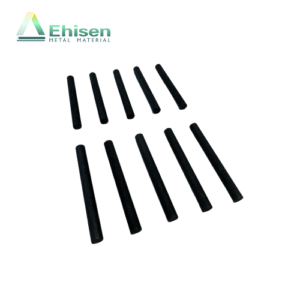
3. Types of Anode Rods: Magnesium, Aluminum, and Titanium
Magnesium Anode Rods: The Common Choice
Magnesium anode rods are the most common type found in water heaters due to their affordability and effectiveness. However, they are more likely to corrode faster, especially in areas with hard water. They require more frequent replacement, which increases maintenance costs in the long run.
Magnesium rods are ideal for use in areas with soft water, where the corrosion process is less aggressive. However, in regions with high mineral content or hard water, magnesium rods may degrade too quickly to offer long-term protection.
Aluminum Anode Rods: A More Durable Alternative
Aluminum anode rods are typically used as a more durable alternative to magnesium. While they last longer and are more resistant to corrosion, they have some downsides. For instance, aluminum rods can produce a strong odor in the water, which some homeowners find unpleasant. Additionally, aluminum anodes are generally less effective than magnesium or titanium in soft water conditions.
Titanium Anode Rods: The Best Option
Titanium anodes are the superior choice for anyone looking to maximize the efficiency and longevity of their water heater. Titanium is an extremely corrosion-resistant material, making it ideal for use in both hard and soft water conditions. Titanium rods also last longer than their magnesium and aluminum counterparts, reducing the need for frequent replacements.
Titanium’s ability to withstand high temperatures and harsh environments makes it an excellent choice for industrial applications, such as electroplating, water treatment, and cathodic protection.
| Anode Rod Type | Material | Durability | Corrosion Resistance | Best Use Condition | Disadvantages | Common Applications |
| Magnesium Anode Rod | Magnesium | Shorter lifespan | Prone to corrosion in hard water | Ideal for soft water areas | Corrodes quickly in hard water; requires frequent replacement | Common in residential water heaters in soft water areas |
| Aluminum Anode Rod | Aluminum | Longer lifespan | Good resistance to corrosion, but less than titanium | Better for moderate water conditions | May produce unpleasant odor in water; less effective in soft water | Residential water heaters, some industrial applications |
| Titanium Anode Rod | Titanium | Longest lifespan | Extremely corrosion-resistant in both hard and soft water | Ideal for both hard and soft water areas | Higher initial cost | Industrial use (electroplating, water treatment, cathodic protection), premium residential water heaters |
4. Why Titanium Anodes Are the Game-Changer
Unmatched Durability and Strength
Titanium is a highly durable material, resistant to both physical wear and chemical corrosion. Unlike magnesium or aluminum, titanium will not corrode as quickly and offers protection for years, even in aggressive water conditions.
Titanium is also extremely strong, which means it will not bend or break under pressure, making it a reliable choice for both residential and commercial water heaters. It’s the ultimate material for those who want the peace of mind that their water heater will continue to perform optimally without constant maintenance.
Superior Corrosion Resistance
Titanium’s corrosion resistance is its standout feature. Unlike other metals, titanium does not react with oxygen or chlorine in water, making it ideal for both hard water and salty water environments. In coastal areas, where salty air can cause accelerated corrosion, titanium anodes will still perform effectively, unlike magnesium or aluminum, which degrade much faster.
Longer Lifespan, Fewer Replacements, Lower Maintenance Costs
Titanium’s longevity is one of its most significant advantages. While magnesium anodes might need to be replaced every 1-2 years and aluminum rods around every 3-5 years, titanium anodes can last 10 years or more without needing replacement. This leads to significant cost savings in the long run as homeowners and businesses won’t need to invest in frequent anode replacements.
In industrial and commercial water heating systems, where equipment uptime is critical, titanium’s durability helps minimize downtime, repair costs, and maintenance.
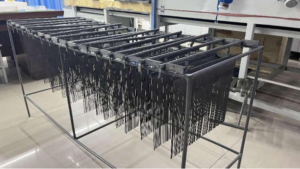
5. Technical Aspects of Titanium Anodes
Material Composition and Benefits of Titanium
Titanium is a transition metal that boasts a unique combination of strength, lightness, and resistance to corrosion. Titanium’s atomic structure gives it remarkable flexibility in high-stress environments, making it ideal for use in harsh conditions, such as water heaters, electroplating tanks, and even aerospace technology.
Titanium is often used in industries where durability and corrosion resistance are of the utmost importance. In fact, titanium is often preferred over other metals due to its superior resistance to corrosion in both acidic and alkaline conditions, as well as its ability to handle higher temperatures without losing its integrity.
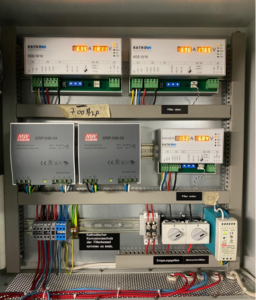
How Titanium Works in Harsh Water Conditions
In many areas, water quality can be highly variable—whether it’s hard water, acidic water, or salty coastal water. Traditional anodes, made from magnesium or aluminum, may break down prematurely in these harsh conditions. However, titanium anodes perform well in nearly all environments, including:
- Hard Water: Titanium anodes can handle the high mineral content found in hard water, which causes faster scaling and corrosion in other metals.
- Salty Water: In coastal areas with salty water, titanium’s resistance to corrosion allows it to maintain effectiveness where magnesium anodes would corrode rapidly.
- Acidic Water: In environments with low pH water, titanium anodes are highly effective because of their resistance to acidic conditions, preventing premature wear.
6. Application of Titanium Anodes in Water Heaters
Titanium anodes are becoming the preferred choice in both residential and commercial water heater systems. Here’s why:
Residential Water Heaters
In a typical home, a water heater can serve for 10-15 years or more, but only if the anode rod is maintained properly. Titanium anodes extend this life by preventing rust and sediment buildup. Unlike magnesium rods that must be replaced every few years, titanium rods can last for decades, providing peace of mind for homeowners and reducing the need for maintenance.
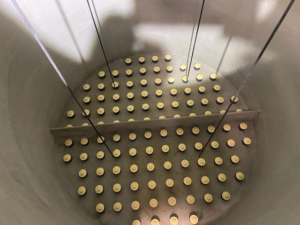
Commercial and Industrial Water Heaters
For large-scale commercial or industrial water heaters, the need for reliable, long-lasting protection is even more critical. Titanium anodes are designed to withstand the high demands of these systems, protecting against corrosion and extending the lifespan of expensive equipment.
Case Studies of titanium anode use in commercial water heating systems show that their cost-effectiveness and performance lead to significant savings on replacement and maintenance costs over time.
7. Broader Applications of Titanium Anodes
Titanium Anodes in Electroplating
Electroplating is an industrial process where metal is deposited onto a surface using electrolysis. In this process, titanium anodes are used to supply electrons to the plating solution. The strength and corrosion resistance of titanium make it an ideal material for this purpose, ensuring the durability and quality of the electroplated surface.
Titanium anodes are particularly useful in the automotive, electronics, and jewelry industries, where high-quality coatings are essential. They also help reduce energy consumption during the plating process, leading to cost savings for businesses.
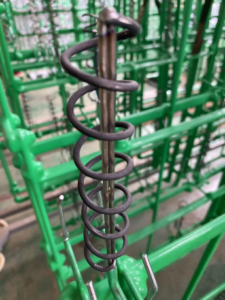
Titanium Anodes in Water Treatment
In water treatment systems, titanium anodes are used to electrolyze water and remove impurities. The high resistance to corrosion ensures that the anodes remain effective over time, even in environments with high levels of pollutants or corrosive agents. This makes titanium anodes a popular choice in municipal water treatment plants and desalination facilities.
Titanium’s ability to withstand harsh chemicals and high temperatures ensures that it continues to perform effectively even in extreme conditions, making it essential for clean water production.
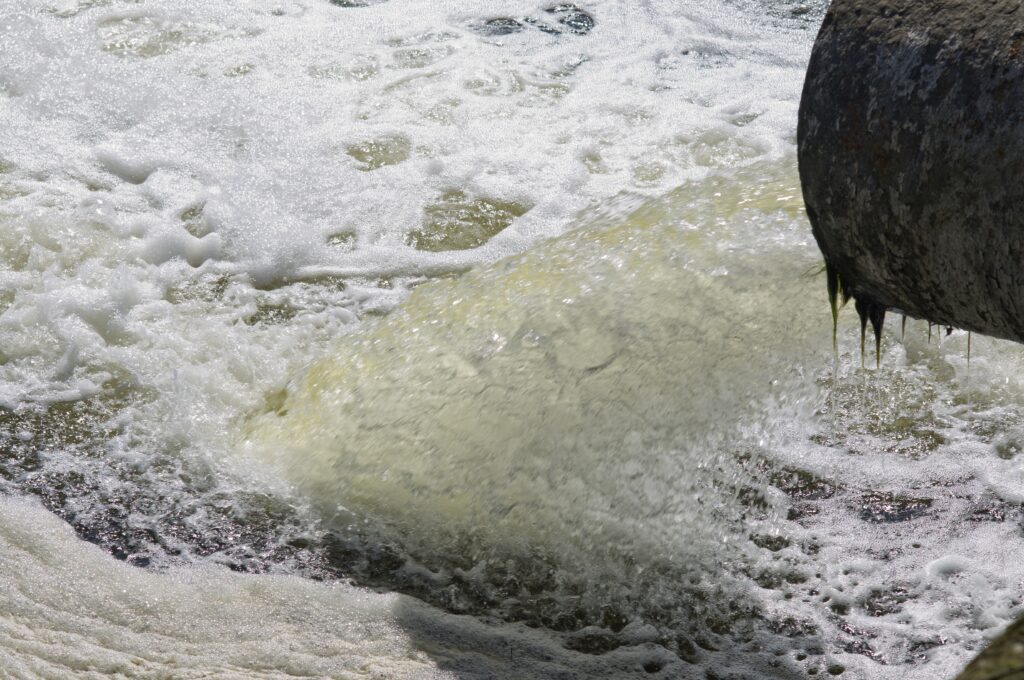
Titanium Anodes in Cathodic Protection
Cathodic protection involves protecting metal structures (like pipelines or marine vessels) from corrosion by using a sacrificial anode. Titanium anodes are often used in these systems because of their ability to withstand corrosion and their long-lasting performance.
Titanium is particularly beneficial in offshore drilling and marine environments, where saltwater accelerates corrosion. It is also used in protecting critical infrastructure, such as underground pipelines, storage tanks, and oil rigs.
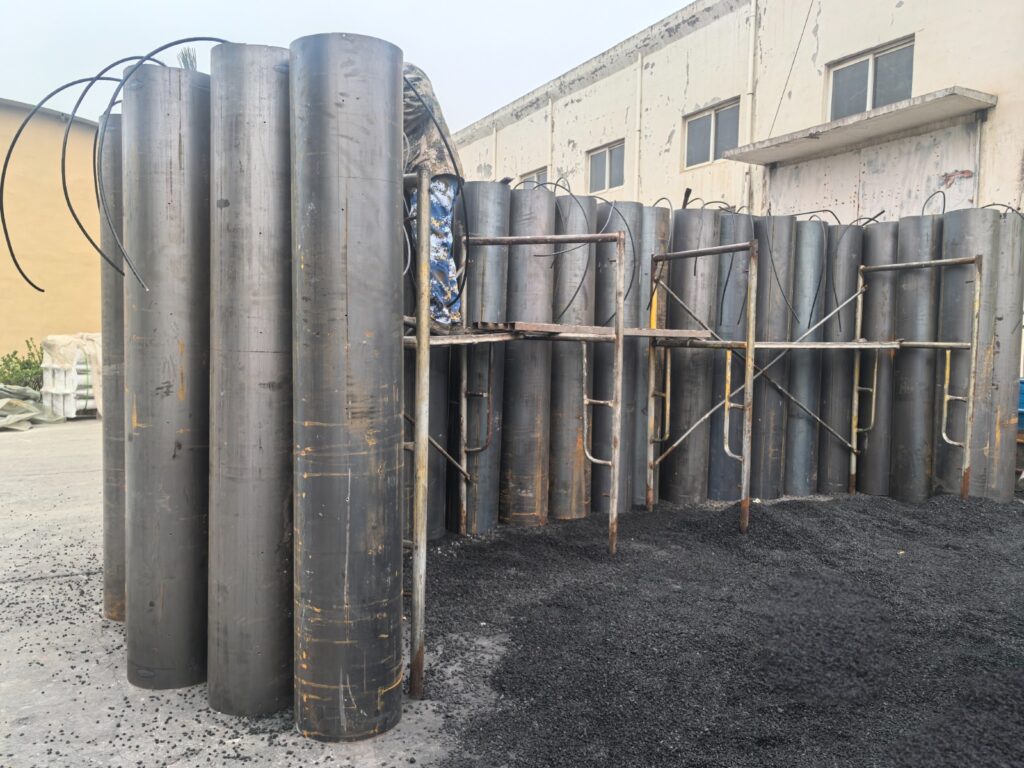
8. How Titanium Anodes Save You Money in the Long Run
While titanium anodes may have a higher upfront cost than magnesium or aluminum anodes, their durability and performance offer significant cost savings over time. Fewer replacements mean lower maintenance costs, and their extended lifespan ensures that your equipment—whether it’s a water heater or a large industrial system—remains operational for many years.
9.How to Choose the Right Titanium Anode for Your System
Assessing Your Water Quality and Heater Type
Choosing the right titanium anode depends on several factors, primarily the water quality and the specific needs of your water heater. Hard water, for example, can accelerate corrosion, so you’ll need a more robust solution like a titanium anode. Conversely, softer water conditions may benefit from a less expensive magnesium anode, though titanium still offers the best performance and longevity.
For residential applications, look for titanium anodes specifically designed for the type of water heater you have—whether it’s a tank-style water heater or a tankless water heater. Many manufacturers offer customizable titanium anodes that can be adjusted to suit specific tank sizes, water conditions, and heating requirements.
Selecting the Right Titanium Alloy
Titanium anodes come in different alloys that can be tailored to specific needs. Common alloys include:
- Grade 1 Titanium: Pure titanium, excellent for corrosion resistance in a variety of applications.
- Grade 2 Titanium: Slightly stronger and more versatile, used in both water treatment and industrial applications.
- Titanium Alloys with Platinum Coating: These are used for very specific applications like electroplating and desalination, offering enhanced efficiency and reduced energy consumption.
For general water heater applications, Grade 2 titanium is often a solid choice due to its combination of strength and corrosion resistance.
10.Maintenance Tips for Titanium Anodes
While titanium anodes are incredibly durable and require far less maintenance compared to magnesium or aluminum, a little upkeep goes a long way in ensuring optimal performance. Here are some tips to help you maintain your titanium anodes:
- Periodic Inspections: Even though titanium is resistant to corrosion, it’s still a good idea to check the anode rod periodically for any signs of wear or buildup. Depending on the system, this may be every 5-10 years.
- Water Quality: Test your water quality regularly, especially if you live in an area with hard water. While titanium handles mineral-rich water better than other anode materials, extreme conditions may still affect performance.
- System Maintenance: Ensure that the rest of your water heater system is functioning properly, including checking for any sediment buildup in the tank, which can decrease the efficiency of the heating system.
11.The Environmental and Economic Benefits of Titanium Anodes
Sustainability: Reducing Waste and Extending Equipment Life
By using titanium anodes, companies can reduce waste by minimizing the frequency of replacements and repair costs. In addition, titanium’s long lifespan means that fewer resources are needed to produce replacement parts, contributing to a more sustainable operation.
Economic Advantage: Long-Term Savings
Although titanium anodes are more expensive initially, their long-term durability and low maintenance needs provide significant savings over time. Businesses and homeowners alike can benefit from reduced operational costs and improved system reliability.
12.The Future of Titanium Anodes: A Sustainable Solution for Modern Industries
As industries continue to evolve and the demand for sustainability grows, titanium anodes are poised to play an even more significant role. Their ability to reduce corrosion and extend the lifespan of equipment is more crucial than ever in sectors that rely on heavy-duty equipment, such as oil and gas, electroplating, water treatment, and hydrogen production.
In an era where reducing environmental impact and improving operational efficiency are key business goals, titanium anodes provide a cutting-edge solution that ticks all the boxes. From long-term cost savings to sustainability, choosing titanium anodes for your water heater and industrial applications is an investment that will pay dividends for years to come.
Conclusion: Titanium Anodes Are the Future of Water Heater Protection
When it comes to protecting your water heater and ensuring its longevity, titanium anodes are the best option available. With their unmatched corrosion resistance, superior durability, and extended lifespan, titanium anodes offer significant cost savings over time. By minimizing the need for frequent replacements and reducing the risk of tank failure, they provide peace of mind for homeowners and businesses alike.
For those in the electroplating, water treatment, and cathodic protection industries, titanium anodes offer the same level of performance, ensuring that your systems remain in optimal condition for years. Titanium’s versatility, combined with its high efficiency and environmental benefits, makes it the go-to material for a wide range of applications.
If you are looking for a long-lasting, efficient, and eco-friendly solution for your water heater or industrial systems, look no further than titanium anodes. With Ehisen Anode’s range of customizable titanium anodes, you can be assured of superior quality and performance. To learn more about how titanium anodes can benefit your system, visit us at Ehisen Anode and explore our range of products today!

